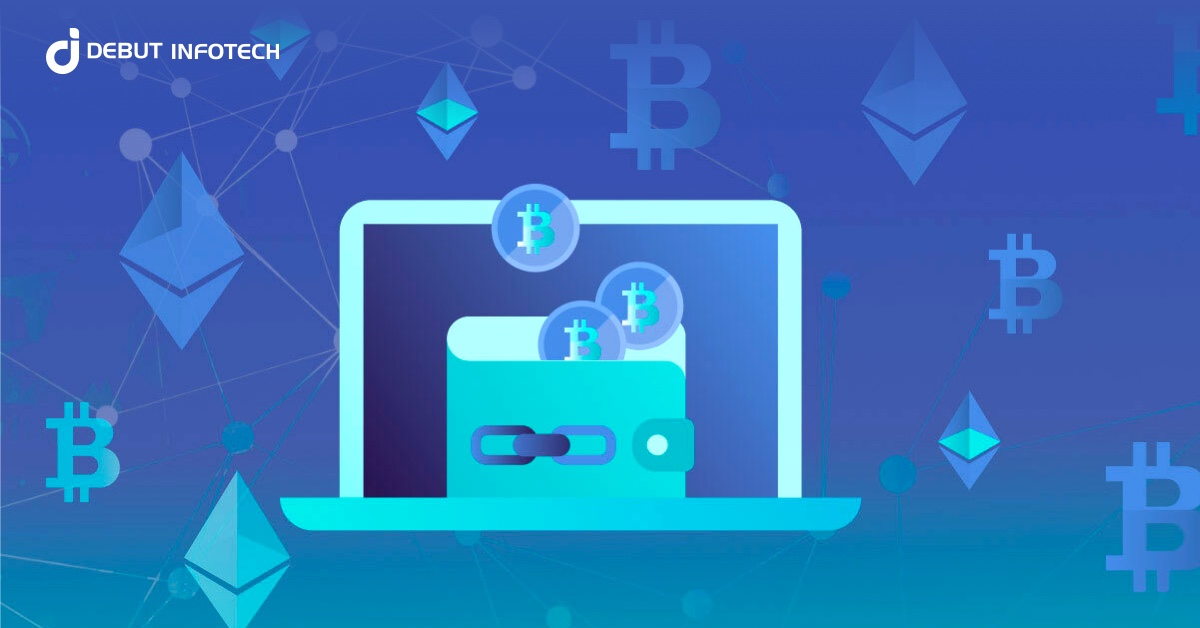In the rapidly evolving world of cryptocurrency, the way we manage and protect our digital assets is crucial. Among the myriad of tools available, decentralized crypto wallets have emerged as a leading solution, offering users enhanced security, control, and privacy. This blog delves into the concept of decentralized crypto wallets, their key benefits, and how they differ from traditional and centralized alternatives.
What is a Decentralized Crypto Wallet?
A decentralized crypto wallet is a digital wallet that allows users to store, manage, and transact with their cryptocurrencies without relying on a central authority or third-party service. Operating on blockchain technology, these wallets provide users with complete control over their private keys—the critical component that ensures the security and ownership of their digital assets. Unlike centralized wallets, which are managed by external entities and often involve trust in third parties, decentralized wallets operate on peer-to-peer networks, eliminating the need for intermediaries.
Benefits of Decentralized Crypto Wallets
- Enhanced Security: Decentralized crypto wallets offer superior security compared to their centralized counterparts. By granting users full control over their private keys, these wallets reduce the risk of hacks and theft that can occur when assets are stored with third-party services. Additionally, the decentralized nature of these wallets means that there is no single point of failure, making them less susceptible to cyberattacks.
- Full Ownership and Control: With decentralized wallets, users have complete ownership of their assets. There is no reliance on a central authority or intermediary, which means users can access their funds and perform transactions at any time without restrictions or delays. This self-custody approach ensures that users retain full control over their private keys and, consequently, their digital assets.
- Privacy: Decentralized wallets offer a higher level of privacy compared to centralized alternatives. Transactions made through these wallets are pseudonymous, meaning that while they are recorded on the blockchain, the identities of the parties involved are not directly exposed. This privacy feature is particularly appealing to users who value anonymity in their financial transactions.
- Multi-Currency Support: Many decentralized wallets support a wide range of cryptocurrencies and tokens, allowing users to manage a diverse portfolio from a single platform. This multi-currency support simplifies asset management and enhances user convenience, enabling seamless transactions across different digital assets.
- Integration with DeFi Platforms: Decentralized wallets often integrate with decentralized finance (DeFi) platforms, providing users with access to a range of financial services, such as lending, borrowing, and staking. This integration allows users to participate in the growing DeFi ecosystem directly from their wallets, expanding their financial opportunities.
- Cross-Platform Accessibility: Decentralized wallets are typically available as mobile apps, desktop applications, and browser extensions. This cross-platform compatibility ensures that users can manage their assets from various devices, offering flexibility and convenience.
Key Features of Decentralized Crypto Wallets
- Private Key Management: One of the most critical features of decentralized wallets is private key management. Users are provided with their own private keys, which are essential for accessing and managing their digital assets. Ensuring the security of these keys is paramount, as losing them could result in the permanent loss of access to the wallet.
- Recovery and Backup: To mitigate the risk of losing access to their wallets, decentralized wallets often include recovery and backup options. Users are given seed phrases or recovery keys that can be used to restore their wallets in case of device loss or failure. Properly backing up these recovery phrases is crucial for ensuring that users can regain access to their assets if needed.
- User-Friendly Interface: Despite their advanced functionalities, decentralized wallets are designed with user experience in mind. Many wallets feature intuitive interfaces that make it easy for both novice and experienced users to navigate their features, manage assets, and perform transactions.
- Transaction Fees: While decentralized wallets offer numerous advantages, users should be aware of potential transaction fees associated with blockchain networks. These fees can vary depending on the network congestion and the type of transaction being performed.
Decentralized Wallets vs. Centralized Wallets
Centralized Wallets: Centralized wallets are managed by third-party services or exchanges, which hold and manage users' private keys on their behalf. While centralized wallets offer convenience and customer support, they are more vulnerable to hacking and service disruptions. Users also face potential risks related to regulatory compliance and data privacy.
Decentralized Wallets: In contrast, decentralized wallets provide users with direct control over their private keys and assets. This self-custody approach enhances security, privacy, and control. However, users are responsible for managing and securing their private keys, which requires vigilance and proper backup practices.
Getting Started with a Decentralized Crypto Wallet
- Choose a Wallet: Select a decentralized wallet that aligns with your needs, considering factors such as supported cryptocurrencies, user interface, and additional features.
- Setup and Backup: Download and install the wallet application. Follow the setup instructions and securely back up your seed phrase or recovery key. This backup is essential for restoring your wallet if needed.
- Deposit Funds: Transfer your cryptocurrencies or tokens to your new wallet by generating a receiving address and completing the transfer from another wallet or exchange.
- Manage Your Assets: Utilize the wallet’s features to manage your assets, conduct transactions, or interact with DeFi platforms. Regularly monitor and secure your wallet to protect against potential threats.
Conclusion
Decentralized crypto wallets represent a significant advancement in digital asset management, offering enhanced security, privacy, and control. By eliminating reliance on central authorities and providing users with direct control over their private keys, these wallets empower individuals to take charge of their financial futures. As the cryptocurrency landscape continues to evolve, decentralized wallets will play a pivotal role in shaping the future of digital finance, offering a more secure and transparent alternative to traditional financial systems.




.png)

Comments